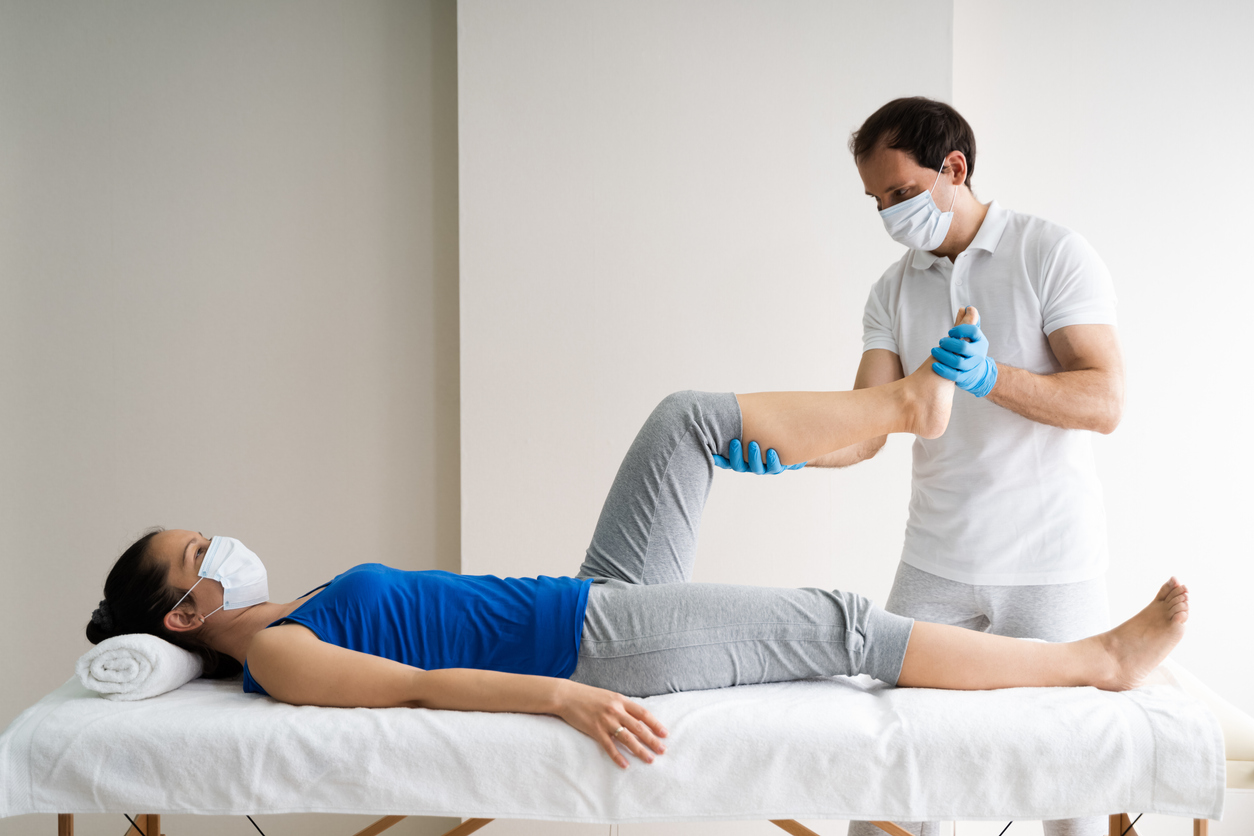Case Study 5
Multiple Sclerosis
BACKGROUND INFORMATION:
- 34-year-old female
- Relapse remitting MS
- Has young family with age range 3-8
- Off work currently due to symptoms
- Registered nurse
- Previously known to psychology services for struggles with mental health including depression
INITIAL ASSESSMENT DETAILS
L.S. was referred into the non-acute CNRS service by the MS district nurse in June 2019 highlighting key problems of lower back pain, right lower limb pain and an unstable gait. On assessment L.S. presented with acute lower back pain with a right sided neurological pattern radiating down her posterior right lower limb. L.S. also highlighted difficulties with her walking and balance which had affected her confidence and mood at work and at home. L.S. had a young family and admitted struggles in her personal life and the fear of her symptoms being a sign of advancing MS and consequently physical/ functional deterioration. L.S. had an MS impact score of 87.
Objectively L.S. demonstrated acute low back pain of 7/10 on the numerical rating scale at rest which could range up to 9/10 with pins and needles radiating down her posterior right lower limb and some increased numbness within the dorsal aspect of her right foot. Furthermore L.S. presented with tenderness at the L2-S1 vertebrae and very restricted range of movement particularly into flexion. Additionally, L.S presented with biomechanical asymmetry at her pelvis and adverse neural tension through her right lower limb.
TREATMENT MODALITIES
Manual therapy – L.S. responded well to advanced spinal mobilisation techniques in order to correct segmental capsular stiffness and facet joint compression between her L4 and L5 vertebrae. L.S. also received direct soft tissue release directly to her paraspinal muscles, thoraco-lumbar fascia and posterior lower limb line.
Home exercise programme – From the initial assessment L.S. was progressively provided with a bespoke exercise programme with the aim of reducing localised stiffness at the lumbar spine, increasing neural mobility through the lower limb and strengthening/ stabilizing her core and pelvis. L.S. was also advised to take up Pilates to further enhance her personalised programme and to engage in regular, structured, therapeutic exercise.
Education/ Advice – Understandably L.S. was highly distressed by the presentation of symptoms and was concerned this was an indication of further disease progression. Frequently in sessions we discussed the symptoms L.S. was presenting with were indicative of pathologies present in a non-neurological population and would significantly improve in response to treatment. She was also informed these types of symptoms are often exacerbated with the presence of an underlying neurological condition. L.S. was informed of the importance of regular exercise as a means of improving her symptoms and prevention of further similar issues in the future.
Referral to other professionals – Over the course of her treatment L.S. required a referral to the podiatry service at Kingsgate House in order to correct biomechanical asymmetry at the pelvis with insoles. Additionally, urgent contact was required with L.S.’s MS nurse and GP in response to concerns over her mental health. During one conversation within a treatment session informed consent was gained to alert the above professionals to thoughts of self-harm and suicide. L.S. was previously known to the appropriate mental health services so this was actioned rapidly.
OUTCOMES:
- L.S. received a course of 10 sessions of physiotherapy and was discharged in December 2019.
- On discharge L.S. reports sporadically having lower back pain with an average numerical rating scale of 3/10. L.S. is working part time as a research nurse and has taken up additional training courses.
- L.S. attends a weekly Pilates class with friends which additionally helps her independently manage her symptoms and reduce the likelihood of further injury.
- L.S. MS impact scale has reduced to 65.





